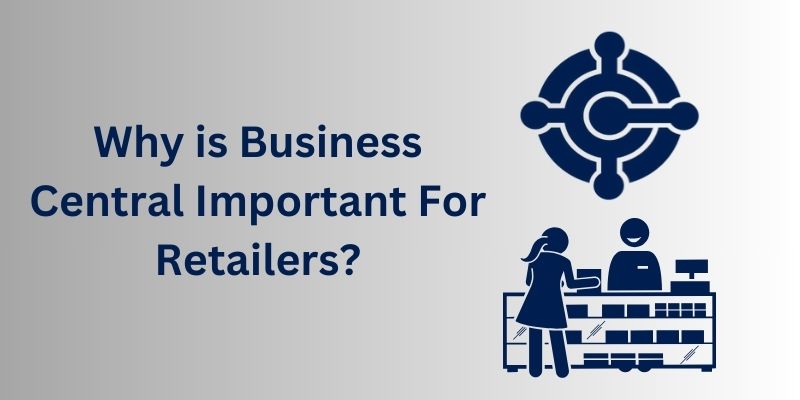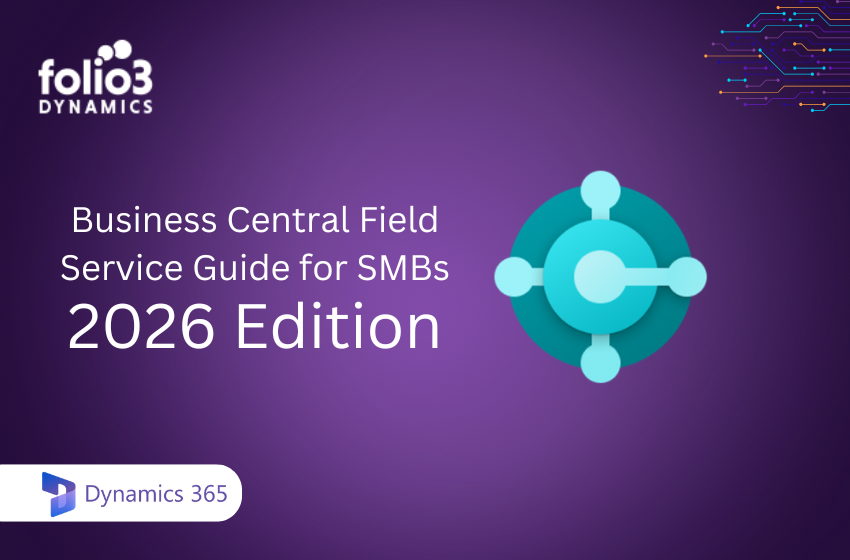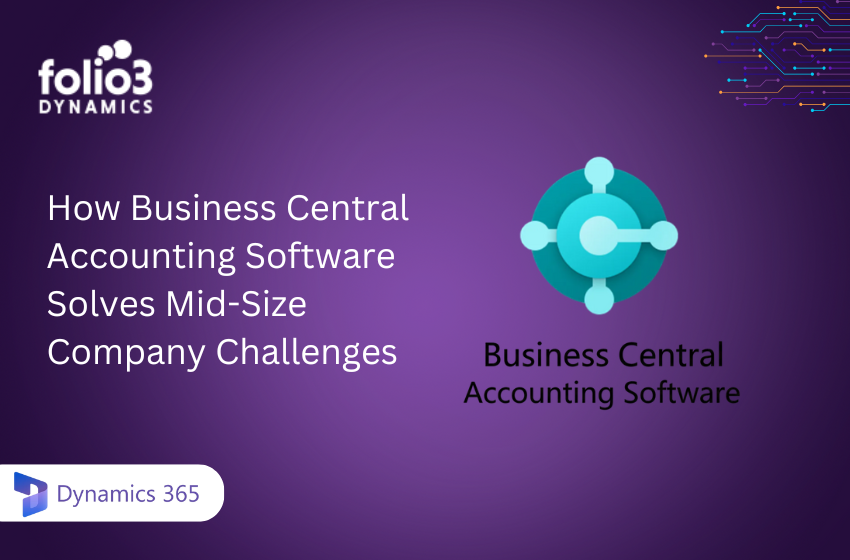In the rapidly evolving retail landscape, staying ahead of the competition requires more than just intuition—it demands state-of-the-art technology that can streamline operations, enhance customer experiences, and drive business growth. Microsoft’s Dynamics 365 Business Central is a powerful tool that offers retailers precisely this edge.
This blog post explores the importance of Business Central for retailers, outlines the steps to implement it in your retail business, and provides valuable tips for successful implementation.
Why is Business Central Important For Retailers?

Dynamics 365 Business Central is an integrated ERP (Enterprise Resource Planning) solution, tailor-made to meet the unique demands of the retail industry. This comprehensive software not only streamlines various business processes but also enhances operational efficiency. Here are several reasons why it’s indispensable for modern retailers:
1. Unified Data Management
Retailers often grapple with disparate data from various sources, including sales, inventory, and customer interactions. Business Central unifies this data, providing a single source of truth that helps in making informed decisions and driving efficiency.
2. Enhanced Customer Experience
Business Central allows retailers to personalize customer interactions by leveraging data insights. With real-time access to customer preferences and purchasing history, businesses can tailor their marketing strategies and improve customer satisfaction.
3. Streamlined Operations
From inventory management to financial reporting, Business Central automates and streamlines core retail operations. This reduces manual errors, saves time, and allows staff to focus on value-added tasks.
4. Scalability
As your retail business grows, Business Central grows with it. Its modular design means you can add or remove features as needed, ensuring you only pay for what you use while maintaining flexibility to adapt to changing business needs.
5. Robust Security
In an era where data breaches are a significant concern, Business Central offers robust security features to protect sensitive information. With Microsoft’s enterprise-grade security infrastructure, retailers can trust their data is safe.
Steps to Implement Business Central in Your Retail Business
Implementing Dynamics 365 Business Central doesn’t have to be daunting. Follow these steps to ensure a smooth transition:
1. Assess Your Needs
Start by evaluating your current systems and identifying pain points. Determine which processes can benefit the most from Business Central’s functionalities.
2. Define Objectives
Set clear objectives for what you aim to achieve with Business Central. Whether it’s improving inventory accuracy, enhancing customer service, or gaining better financial visibility, having defined goals will guide the implementation process.
3. Choose the Right Partner
Choosing the right MS Dynamics 365 Business Central partner can make a significant difference. They bring expertise and experience, ensuring the implementation is tailored to your specific needs and is completed efficiently.
4. Plan and Prepare
Develop a comprehensive implementation plan that includes timelines, resources, and milestones. Ensure your team is prepared for the change by communicating the benefits and providing necessary training.
5. Data Migration
Clean and migrate your existing data into Business Central. This step is crucial for ensuring data integrity and accuracy in the new system. Work with your implementation partner to ensure a seamless data transfer.
6. Configure and Customize
Customize Business Central to fit your business processes. This might include configuring modules, setting up workflows, and integrating with other systems.
7. Test Thoroughly
Before going live, thoroughly test the system to identify and rectify any issues. Conduct user acceptance testing (UAT) to ensure the solution meets your business requirements.
8. Go Live and Support
Once testing is complete, go live with Business Central. Provide ongoing support to your team to address any issues and ensure they are comfortable using the new system.
Tips for Successful Business Central Implementation in Retail
Successful implementation requires more than just following steps—it requires strategic planning and execution. Here are some tips to ensure a smooth and effective implementation:
1. Involve Stakeholders Early
Engage key stakeholders from the outset to gain their insights and buy-in. Their support is crucial for overcoming resistance to change and ensuring a smooth transition.
2. Focus on Change Management
Implementing a new system is a significant change for your organization. Invest in change management strategies, such as training sessions and regular communication, to help your team adapt.
3. Prioritize Data Quality
Data is the backbone of Business Central. Ensure that the data you migrate is clean, accurate, and relevant. Poor data quality can lead to inaccurate reports and insights.
4. Start with Core Features
Avoid overwhelming your team by starting with the core features of Business Central. Once they are comfortable, you can gradually introduce additional functionalities.
5. Monitor and Iterate
Even after going live, continuously monitor the system’s performance and gather feedback from users. Use this information to make necessary adjustments and improvements.
Conclusion
Dynamics 365 Business Central is a game-changer for retailers looking to enhance their operations, improve customer experiences, and drive growth. By understanding its importance, carefully planning and executing the implementation, and following best practices, retail businesses can unlock the full potential of this powerful ERP solution.
Folio3 Dynamics is a Microsoft partner for Business Applications and a global cloud provider with a proven track record in digital transformation and process engineering across various industries. From entrepreneurs and SMEs to Fortune 500 companies, we have over a decade of experience. Our post-modern ERP implementation approach combines core ERP, integrations, mobility solutions, and business analytics.
Remember, a successful implementation can set your retail business on the path to sustained success and growth.


